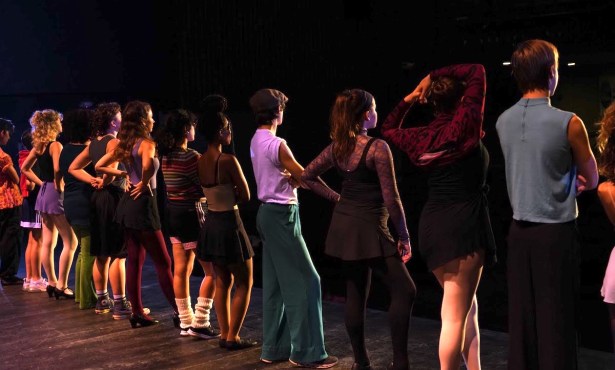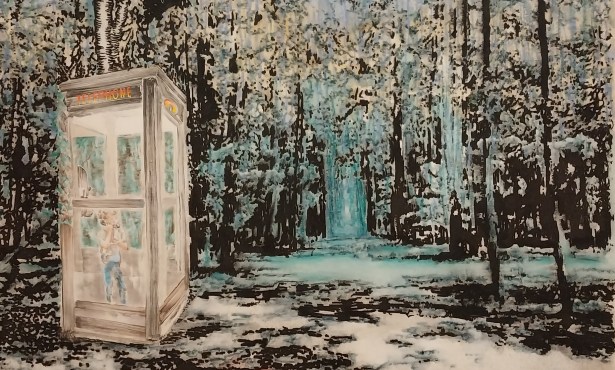
The Andy Warhol Diaries, a published collection of the artists’ personal reflections, is a work of art in and of itself. But it did not come from the artists’ own hand.
Warhol dictated his confessions, from the mundane to the intimate to the controversial and scandalous, to his friend and amanuensis, Pat Hackett — beginning after Warhol was shot in 1976 and continuing until five days before his death in 1987. Hackett’s edited version of his musings became a bestseller, but adapting it to the screen gave Warhol’s reverie a vibrant, new vitality — and four Emmy nominations.
Suspend your disbelief for the narration, and you take the place of Hackett listening to Warhol on one end of a receiver. A monotonous mix of narration by voice actor Bill Irwin and an AI recreation of Warhol’s voice tells the artists’ tales of nights out, love affairs, fallouts, fire, and everything in-between. The robotic voice teeters on the edge of the uncanny valley, but is similar enough for recounting Warhol’s illustrious life. After all, Andy did always say he wanted to be a machine.
Through the Netflix miniseries The Andy Warhol Diaries, producer Ryan Murphy and writer/director Andrew Rossi deconstruct the “myth” that Warhol constructed of himself. Beginning with an exploration of the artist’s development and popular skepticism aimed toward him, they branch out to paint a picture of his life that would never make its way onto a Warhol canvas. The series unravels this tightly wound public persona; the publicly sexless artist becomes sexual, his deepest feelings are revealed, and his poeticism, his humor, and his flaws are given a new medium.
Appropriately, the cinematography pops, complimenting the mystical details of the artists’ life and work. Visually compelling, vintage-styled elements — risqué scenes of Warhol’s “underground films” and archival interview footage, for instance — underlay the artist’s reflections and interviews with those who knew and/or admired him. Contrasting views of Warhol, the external and internal, are put into balance in the six episodes that encompass the shortened telling of his more than 20,000-page journal. He’s stripped naked, metaphorically, putting him almost on par with the nude subjects he captured through his films and portraits.
Overall, the series is a heartfelt, sexual, and fascinating peek into a once private world. It is incredible how detailed his diary was; and the show lends the viewer a hand to walk through Andy’s wild, and surprisingly relatable, daily lives and attitudes — reanimating the late artist in a new way. We can never know what he would think of the series, but even if he hated the vulnerability, it’s safe to say he’d love being made mechanical; his life a series of scenes and his voice a narrative automation.
Support the Santa Barbara Independent through a long-term or a single contribution.




You must be logged in to post a comment.